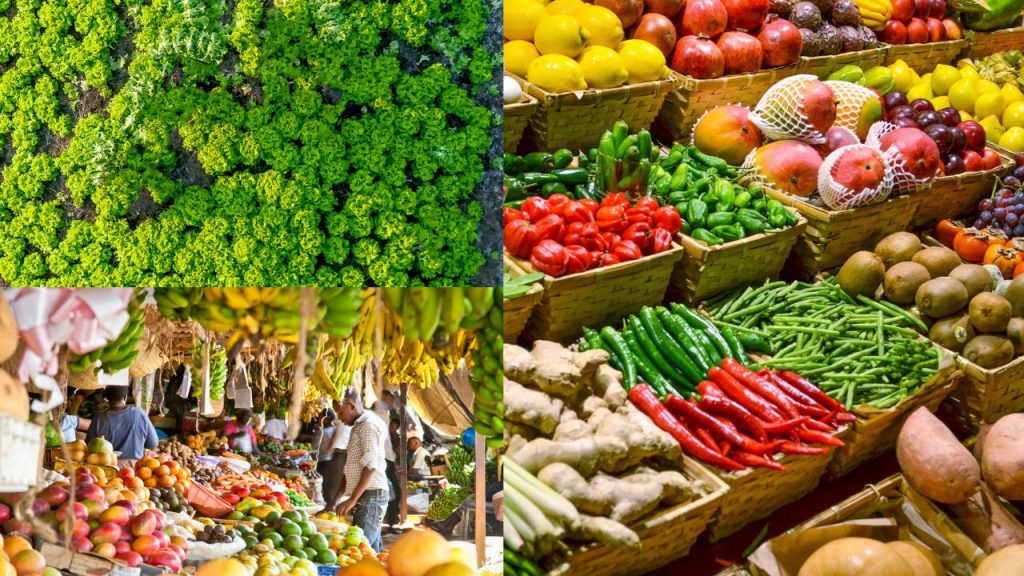A Critical Concern
Food security is a pressing issue in the United Kingdom, encompassing the availability, affordability, and safety of food. Ensuring that all citizens have access to sufficient, nutritious food is crucial for maintaining public health and social stability. As global challenges such as climate change, economic fluctuations, and geopolitical tensions impact food systems, addressing food security has become a top priority for policymakers and stakeholders across the UK.
Understanding Food Security
Food security is defined as the state in which all people have physical, social, and economic access to sufficient, safe, and nutritious food to meet their dietary needs and preferences for an active and healthy life. It involves several key components:
- Availability: The supply of food, including production, distribution, and trade.
- Access: The ability of individuals to obtain food, influenced by factors such as income and food prices.
- Utilisation: The proper use of food, which includes its nutritional quality and safety.
- Stability: The consistency of food availability and access over time.
Current State of Food Security in the UK
The UK generally enjoys a high level of food security, with a diverse and stable food supply. However, recent challenges have highlighted vulnerabilities within the food system:
- Supply Chain Disruptions: Events such as the COVID-19 pandemic and Brexit have exposed weaknesses in food supply chains. Disruptions in logistics, labour shortages, and regulatory changes have led to temporary shortages and increased food prices.
- Economic Pressures: Rising inflation and economic uncertainty have affected food affordability. Higher costs for energy, transportation, and raw materials have contributed to increased food prices, impacting households, particularly those on lower incomes.
- Climate Change: The effects of climate change, including extreme weather events and shifting growing conditions, pose risks to food production. Adverse weather can impact crop yields and disrupt supply chains, leading to fluctuations in food availability and prices.
Government Strategies and Policies
To address these challenges, the UK government has implemented several strategies and policies aimed at enhancing food security:
- National Food Strategy: The UK government’s National Food Strategy sets out a vision for a more sustainable and resilient food system. It includes recommendations for improving food production, reducing food waste, and enhancing dietary health.
- Food Resilience: Efforts to bolster food resilience include diversifying supply sources, investing in local food production, and strengthening food supply chains. Policies are also in place to support farmers and food producers in adapting to climate change and economic pressures.
- Food Assistance Programs: The government supports various food assistance programmes to ensure that vulnerable populations have access to nutritious food. These include initiatives such as food banks, school meal programmes, and support for low-income households.

Role of Agriculture and Innovation
Agriculture plays a crucial role in ensuring food security by producing the food supply needed to meet national demand. Innovations in agricultural technology, such as precision farming, vertical farming, and sustainable practices, are helping to improve food production efficiency and resilience.
- Sustainable Farming: Emphasising sustainable farming practices, such as soil health management, water conservation, and reduced use of chemicals, helps to maintain productive and resilient agricultural systems.
- Technological Advancements: Advances in technology, including genetic research, data analytics, and automation, are enhancing crop yields, reducing waste, and improving the overall efficiency of food production.
Food Waste and Sustainability
Reducing food waste is a critical component of food security. The UK government and various organisations are working to tackle food waste through initiatives such as:
- Food Waste Reduction Campaigns: Campaigns and programmes aim to raise awareness about food waste and encourage consumers to reduce waste at home.
- Redistribution Schemes: Efforts to redistribute surplus food to those in need, including partnerships with food banks and charities, help to minimise waste and support food security.
Community and Local Initiatives
Local and community-based initiatives also play a significant role in enhancing food security. These include:
- Community Gardens and Urban Farming: Community gardens and urban farming projects provide local food sources and promote self-sufficiency.
- Local Food Networks: Supporting local food networks and farmers’ markets helps to strengthen regional food systems and reduce reliance on global supply chains.
The Future of Food Security in the UK
Ensuring food security in the UK will require ongoing efforts and adaptation to emerging challenges. Key areas of focus include:
- Strengthening Supply Chains: Building more resilient and diversified food supply chains to withstand disruptions.
- Promoting Sustainable Practices: Encouraging sustainable farming and consumption practices to protect natural resources and support long-term food security.
- Enhancing Collaboration: Collaboration between government, industry, and communities to address food security challenges and develop effective solutions.
Conclusion: Food Security in the United Kingdom
Food security is a vital concern for the United Kingdom, encompassing the availability, access, and safety of food. While the UK has a robust food system, recent challenges highlight the need for continued efforts to strengthen food security. By addressing supply chain vulnerabilities, promoting sustainability, and supporting local initiatives, the UK can work towards a more secure and resilient food future for all its citizens.
